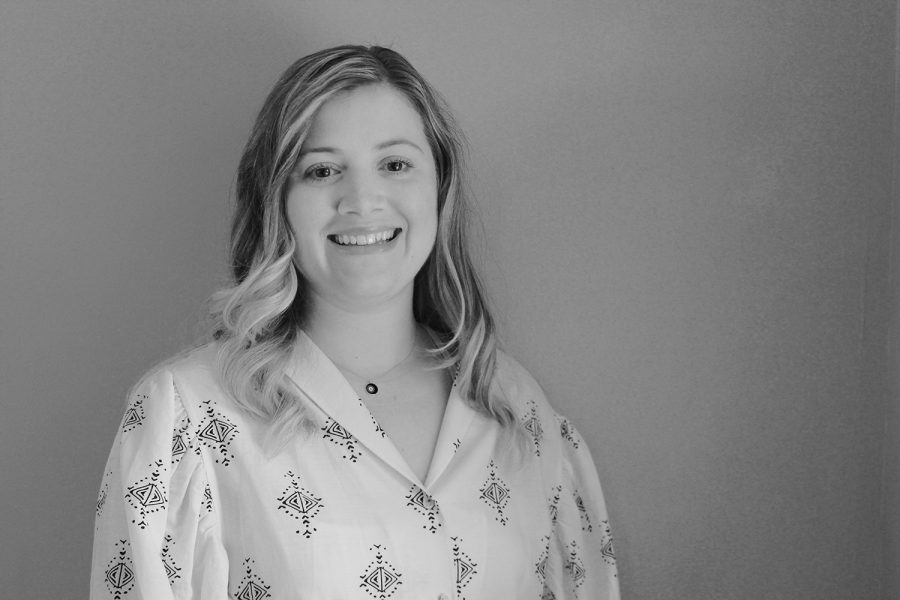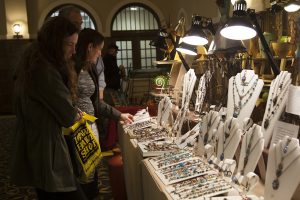UI doctoral students receive fellowship from AAUW
Two University of Iowa doctoral students have received American Fellowships from the American Association of University Women for their work, and support of women in their fields.
September 17, 2019
An American Association of University Women fellowship aims to advance the academic work of women who struggle to complete their dissertation because of family issues and funding.
Two University of Iowa doctoral students have received fellowships from the association. UI doctoral students Ana-Monica Racila and Serena Gumusoglu are pursuing Ph.D.s in medical anthropology and neuroscience, respectively, and both received recognition for their work.
The fellowship will fund both students’ research and allow them to focus on finishing their dissertations while wrapping up their final year of study, said Shana Sabbath, the association’s senior program officer for Fellowships and Programs.
Gumusoglu said she studies the processes that regulate neurodevelopment during pregnancy, specifically maternal perturbation such as stress, infections, and inflammatory injuries.
Her research is conducted through testing and observing reactions in mice, Gumusoglu said. The testing allows researchers to ask specific questions involving the molecular and biological factors that are changed, she added.
“I think things like this award are really going to help to even out the playing field so that many of those imbalances are being addressed in really concrete ways,” Gumusoglu said.
Applicants for the American Fellowship must be full-time students with financial need, as well as be in their final year of study, Sabbath said. The award specifically provides recipients with $20,000 for the completion of their dissertation, she said.
RELATED: Webinar series helps UI grad students apply for research awards, fellowships
The selection panelists for the fellowship consider an applicant’s commitment to women and girls in their community and profession, Sabbath said. They also take the applicant’s project plan and the feasibility of its completion into account when selecting recipients, she added.
“Women have to overcome additional barriers when they’re trying to fund their academic work, whether it’s pre-doctoral or postdoctoral, including oftentimes spending more of their own funds and trying to support their families,” Sabbath said.
Gumusoglu said she is interested in observing preeclampsia, a common and sometimes harmful gestational condition that occurs during pregnancy, in mice.
Researchers are looking at the offspring of the mice because the human condition can affect a child’s brain and their developmental trajectory, Gumusoglu said. It’s unclear why that happens, so the mice allow them to take a closer look at the findings, she said.
There is a large gap in the knowledge professionals have on what causes neurological disorders and how they can be prevented, Gumusoglu’s UI Faculty Mentor Hanna Stevens said.
Gumusoglu’s work focuses on how to reduce the possibility of the disorders occurring, Stevens said, because researchers are figuring out how mechanisms not previously studied affect the brain.
Stevens sees the fellowship as an acknowledgement of what Gumusoglu has accomplished so far and her potential as a scientist, she said.
“[Gumusoglu] has been very dedicated in supporting other women in science, trainees who are at earlier stages of their career, and peers, other women scientists,” Stevens said.






